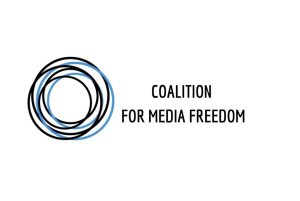Intimidation of journalists working for independent media in Albania is getting worse, as state-level and local officials attempt to silence critical voices, both online and face-to-face.
When journalist Armando Rabi was covering the voting in the May general election in the southern Albanian city of Gjirokaster, he saw civil servants acting suspiciously at a polling station – hanging around closer than electoral legislation allows.
But when he identified himself as a journalist and started to film them, an unknown person threatened and then assaulted him. His assailant was “an individual who was accompanying a public official”, he said.
It was not the only such attack on journalists during the election that officials either instigated, or failed to prevent. When an MCN TV correspondent, Elsa Xhindole, was reporting at a polling station in Pogradec, a town beside Lake Ohrid, she claims an unknown individual seized her phone.
“While I was inside the voting centre, an unidentified person grabbed my phone and deleted the material I had filmed,” Xhindole said. Officials did nothing to stop it, she added.
The recently-published OSCE/ODIHR election observers’ report on the May polls noted several cases of intimidation and obstruction of journalists.
This year, the media freedom organsation Safe Journalists has registered 36 attacks on journalists in Albania, many of them working in small communities with few ways to protect themselves.
Journalists in Albania are under growing pressure from hostile rhetoric towards the media in a highly polarised political environment. Moreover, the insults come from senior politicians as well, including Prime Minister Edi Rama and the mayor of Tirana, Erion Veliaj.
Rama has spoken of a “political-media swamp”, while Veliaj, after being arrested on corruption charges in February, described journalists as “dogs”.
The media freedom organisation Reporters Without Borders, in its 2025 World Press Freedom Index, noted that journalists in Albania are subjected to intimidation by both politicians and organised crime groups. The problem is compounded by “a flawed legal framework and partisan regulation”, it said.
The situation is worse in small communities. There, local journalists and opposition voices face coordinated harassment, often with no institutional protection. It all points to a deepening crisis for press freedom in Albania and to the normalisation of intimidation as a tool to silence dissent.
Viral video, mayoral pressure
In October, Report TV correspondent Piro Nase, based in Gjirokaster, southern Albania, reported receiving multiple threatening phone calls after airing a story about the suspension of a police official in the town of Permet allegedly linked to a sex abuse case.
In eastern Albania, a group called the Young Journalists Initiative in Librazhd, a small town of about 11,000 people, reported encountering a backlash after they created an online group called the Initiative for Protecting the River Shkumbin, with the aim of raising awareness about river pollution.
“After we published a video [on Facebook] of a hospital in Librazhd throwing waste into the River Shkumbin, it went viral,” said Dorina Haruni, one of the journalists in the group.
“As a result, my family and I faced harassment from businesses and residents in Librazhd that are frequent polluters of the river,” she recalled. “I feared for my job because the municipality and the mayor himself called me a couple of times, urging me to stop my public campaigns about river pollution.”
The situation is similar in other small communities, where local government officials are powerful figures.
Independent journalists face harassment online as well as in person. A cyber-attack recently targeted Citizens Channel, a media organisation that aids journalists and promotes citizen journalism in Albania, attacking its Facebook page and website.
“The assault began with DDoS [Distributed Denial of Service] attacks and the injection of harmful scripts [malicious code inserted to exploit vulnerabilities],” recalled Lorin Kadiu, the director of Citizens Channel. Articles were deleted, including critical reports on Tirana municipality’s controversial deal with a private company, Fusha Sh.P.K. on construction tenders, as well as thousands of posts.
Eventually, Meta, Facebook’s parent company, restored most of the missing content. “However, our challenges continued, as we faced an influx of over 50,000 fake followers on our Instagram page within minutes,” Kadiu said.
Abuses need to be reported
The Citizens Channel incident highlights the need for big social media companies like Meta to pay more attention to the problems of independent media outlets in smaller countries like Albania.
“It was very difficult for us to convince the platform that we are media, and not a pirate site selling illegal content – this was how we were reported,” said Kadiu. “In this case, even if the platform itself does not intend censorship, its policies create a context where censors have an advantage.”
The incident also highlighted journalists’ need for better cyber-security measures.
“Journalists, and independent media in general, have a low level of awareness on cybersecurity, or an ability to protect themselves, or access to technical support to protect themselves or mitigate attacks,” noted Orkidea Xhaferaj, a researcher who leads the Digital and Innovation Policy Department at the Albanian think tank SCiDEV.
Xhaferaj believes a culture of reporting needs fostering – to encourage journalists and the public to report abuses, threats or other problems, and so ensure accountability.
Without action to protect journalists and strengthen digital and institutional safeguards, the state of media freedom and democratic accountability in Albania will remain precarious.
As the country looks to join the European Union, ensuring press freedom must remain a top priority – and will require continued vigilance and international support.
Arlis Alikaj is a freelance journalist in Librazhd, Albania.
The opinions expressed are those of the author and do not necessarily reflect the views of BIRN.
Source: BalkanInsight




